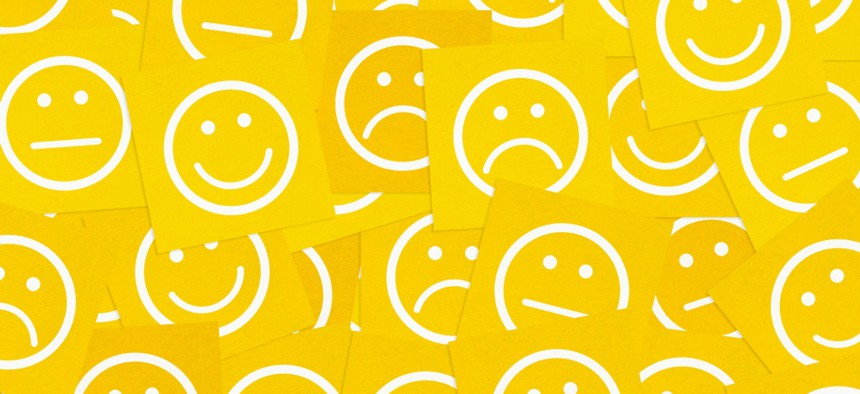What Agencies Need to Consider When Collecting Data

atakan/iStock.com
It can actually be extremely complicated.
For years, government agencies’ customer service process has remained virtually unchanged. To gain access to help, citizens have to wait in lines for hours at offices, wait on hold in call center queues or navigate complicated websites. But with 2.5 quintillion bytes of data produced every day, information about customer expectations is easily accessible to departments that are looking to adapt. Like any large organization, creating change in government entities can be challenging, but new technologies are emerging that can enable data-driven decisions.
Using Data
When considering what data is needed, it’s important to start with how the data will be used. In the case of government agencies, the focus should be on improving the citizens’ experience. This could mean reducing wait times, improving accessibility, or increasing communications. Understanding what pain points your customers are experiencing can help you streamline data collection. Start by performing an internal audit. How is information acquired and processed? Where are the bottlenecks? What data are you generating and what is missing? Asking these questions can guide improvements.
Once you understand what data is needed, train and upskill your staff. After years of using the same systems and processes, employees need to understand the importance of proper data collection—and consent—to ensure that they are gathering data appropriately. Harvesting the data and having it available is only part of the problem, though. Government agencies also need to know how to analyze and understand these insights in order to implement new systems and processes. This may require hiring consultants or specialized personnel that can accurately analyze data to create better systems.
Collecting Data
Gathering customer data seems like an easy task, but it can actually be extremely complicated. Large organizations buy data from corporations, but government agencies need to use more transparent methods. If citizens see that government entities are using inadequate or untrustworthy methods to collect private data, this can cause huge legal problems.
Simple technological solutions can accomplish data collection in fully compliant ways. Using queue management software can reduce wait time while accumulating data on every visit. These solutions create virtual queues for call centers or in-person visits. After joining the virtual queue, citizens receive updates on wait times and their place in line, then receive a call or text when a representative is available. At the same time, these systems collect data on all visits, including the number of transactions performed, the number of people in line, and the length of each visit.
Queue management software can also be used to implement surveys. Every time a citizen interacts with the software, contact information is collected. Immediately after their visit, the software can send out a survey about the experience. Using technology to automate the process can dramatically increase response rates, as the experience is still top-of-mind. Surveys are also an efficient way to acquire data while still complying with consent, improving trust and increasing transparency.
Protecting Data
Government data is considered the most important and valuable type of data created, which can make it vulnerable to cybersecurity attacks. Along with training employees on how to properly assemble and use data, government agencies also need to ensure that they understand the risks associated with data collection and the correct steps to protect it. This means training them on phishing attacks and email hacking, and how to avoid these costly mistakes.
When implementing new technologies, data privacy concerns are also exceptionally important and can make the process complicated. Organizations should choose trusted third-party technology solutions that have experience with government agencies. This means that they possess prior experience with the specific privacy concerns of your organization and will have the steps in place to protect citizens’ data. Collecting data can help to create valuable change and better results, but only if it’s done securely.
Charlie Meyer is the senior vice president of sales and leads the North American sales team at QLess.





